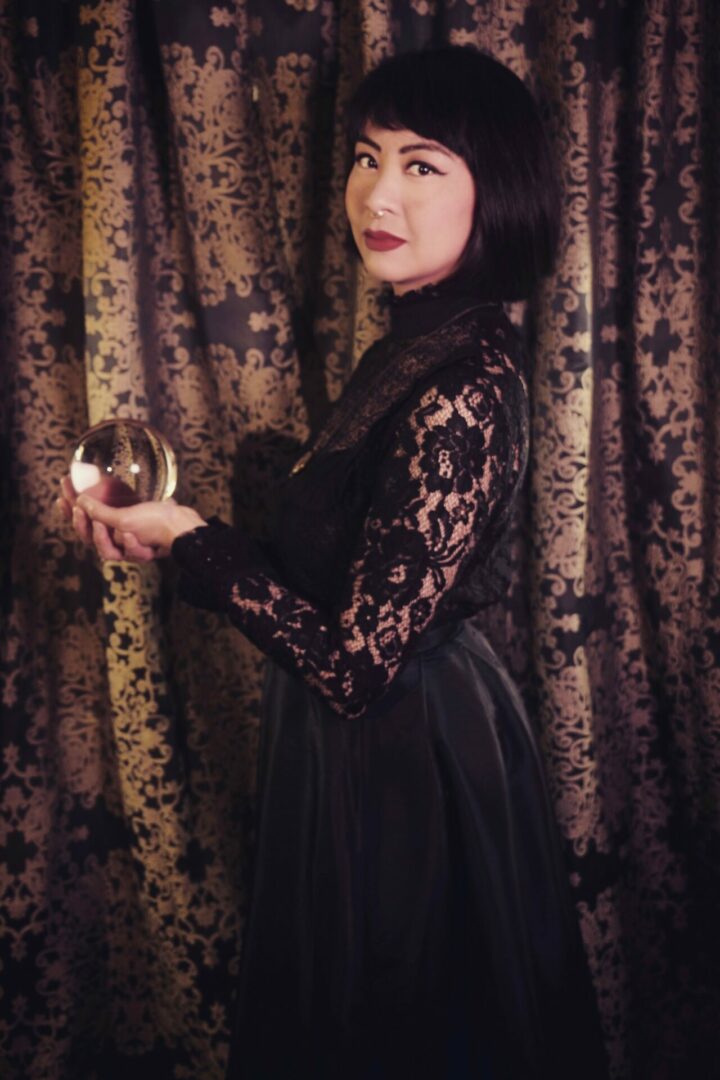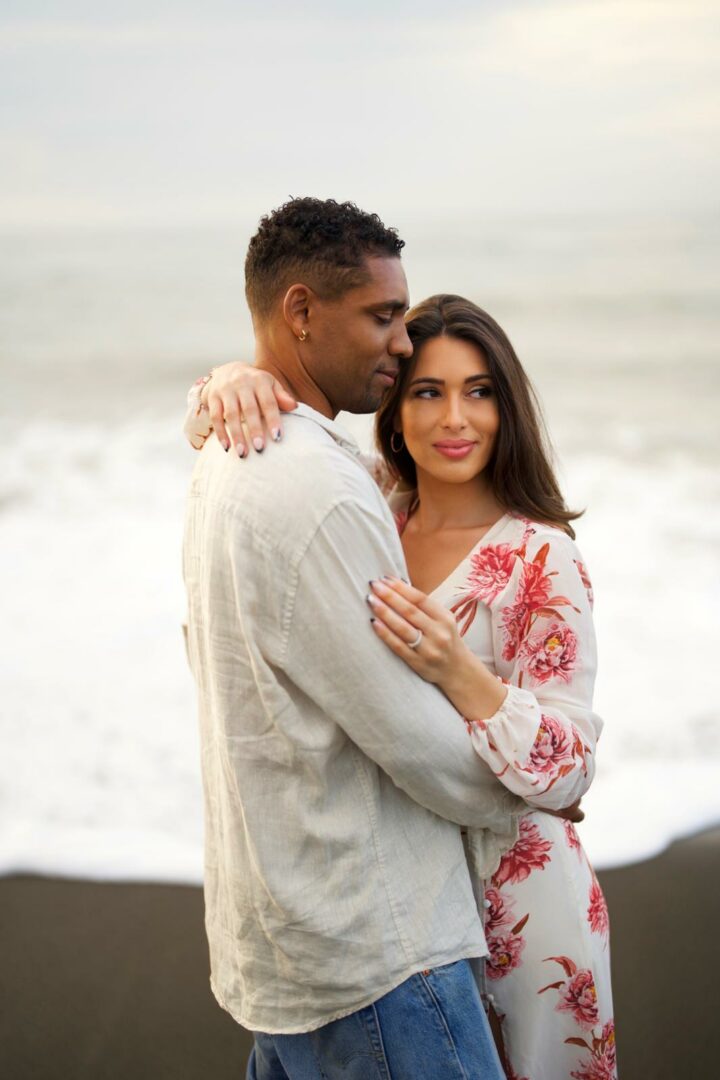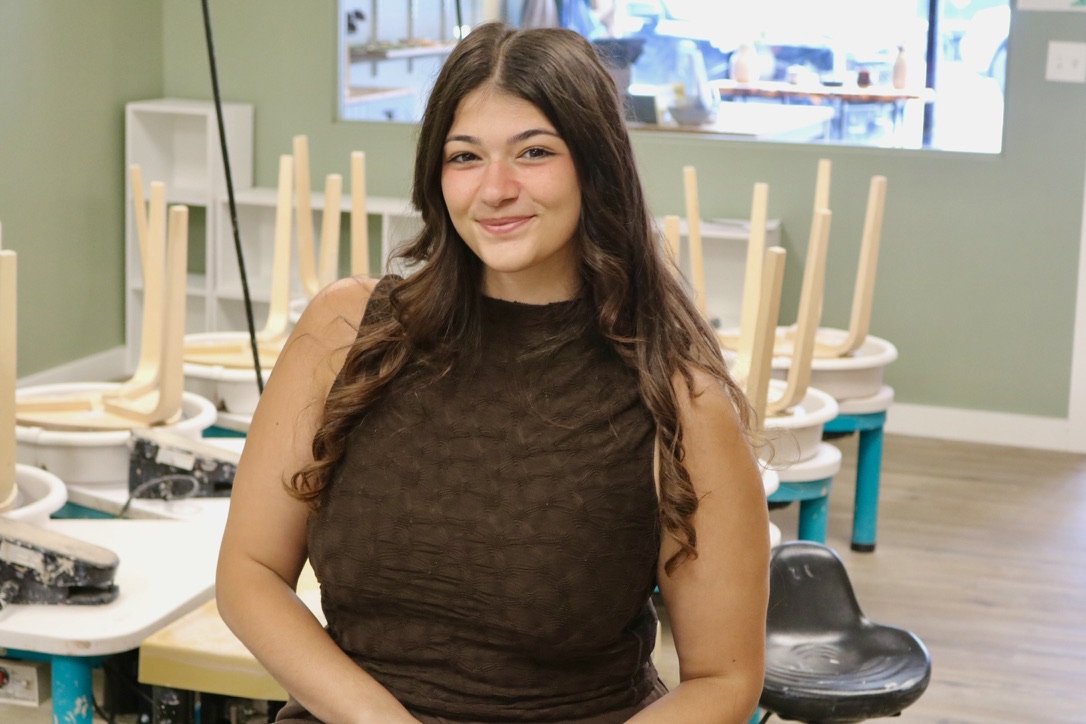We caught up with the brilliant and insightful FRANCESCA PO a few weeks ago and have shared our conversation below.
FRANCESCA, so good to have you with us today. We’ve always been impressed with folks who have a very clear sense of purpose and so maybe we can jump right in and talk about how you found your purpose?
I encountered some powerful spiritual experiences at a very young age, which really set me off on a trajectory of devoting my entire life to God.
At first, this took the form of pursuing life as a nun. As my spiritual journey developed, this calling turned to a commitment to helping all people connect to more purposeful things in life—particularly those who are not religious or have left religion for whatever reason. God is in all of us.
Thanks for sharing that. So, before we get any further into our conversation, can you tell our readers a bit about yourself and what you’re working on?
I am a formally trained spiritual mentor and esoteric artist in practice since 2001. I am available for individual sessions, couple/group sessions, speaking engagements, community-/team-building events, workshops, and retreats, in both religious and nonreligious contexts. I specialize in the following modalities: Nonviolent Communication (NVC), meditation, the Enneagram, Astrology, and spiritual mentoring.
I’ve been a peace activist nearly all my life and am a member of the Board of Directors at the Metta Center of Nonviolence (www.mettacenter.org), so NVC is part of this peace work. NVC is based on the principles of nonviolence—the natural state of compassion where violence does not exist. Its benefits are: greater authenticity in communication, increased understanding of others, deepening connections with others, and enduring conflict resolutions.
As mentioned, my early life was devoted to pursuing becoming a nun, thus I explored countless contemplative traditions in the Catholic world. At university, I was formally taught by Michael Nagler in Passage Meditation. Eventually, as an all-around spiritual seeker, I learned traditional and contemporary forms of meditation from around the world. Meditation is not just sitting in silence—everybody’s different, and there’s different forms for every kind of person. I am available for facilitating various forms of meditation, so one can find what works best for oneself.
While discerning becoming a nun, I was trained in the Enneagram in the tradition of Richard Rohr, who grounds the Enneagram in Christian mysticism and integrates it with other major contemporary schools of thought. Dating as early as a practice of the Desert Mystics of the Abrahamic traditions (circa 200 CE), the Enneagram is known as a tool for emotional intelligence, spiritual development, relationship-building, and, at its best, a tool for developing world peace.
I was formally trained in Archetypal Cosmology/Astrology under Richard Tarnas at the California Institute of Integral Studies, which is a tradition that offers analyses that are scientific and evidence-based. Common astrological inquiries are: natal chart analyses, relationship compatibilities, recommendations of date(s) for particular events, and analyses of particular periods in time.
Lastly, I mentor on the basis of a side-by-side relationship, where the mentor and mentee are considered equals deepening through a process together, as well as a teacher-student relationship, where the mentee is encouraged to learn mentorship tools in order to understand them as a practitioner.
Other complementary practices that can be incorporated by need or request are: aromatherapy, Christian liturgy/Sacramentals, comparative philosophy, crystal/stone therapy, divination (Sabian Oracle, I Ching, the Tarot, etc.), energy, esoteric philosophy, ethnopharmaceuticals, “Modern Love: 36 Questions”, orbuculum scrying, Pagan/elemental liturgy, religious studies, scriptural studies, sound baths, spell-casting, “the Third Harmony: Cosmic Peaceforce”, “the Transformation Game”, western philosophy, yoga.
There is so much advice out there about all the different skills and qualities folks need to develop in order to succeed in today’s highly competitive environment and often it can feel overwhelming. So, if we had to break it down to just the three that matter most, which three skills or qualities would you focus on?
1. Humility
Socrates claimed to “know nothing”. Jesus taught us to approach life as children. Buddhism encourages us to always have a “beginner’s mind”. When we approach things with humility and recognize that we cannot know everything, we are paradoxically opened up to infinite possibilities and qualitatively gain everything.
2. Authenticity
Pure honesty and transparency to oneself and the world is such an underrated gift. It is probably the most repeated cliché in all spiritualities, but there really is no other path to true peace than to listen and follow to your heart, your deepest self, and God within oneself.
3. Love
When I was a teenager, I started to live by the idea of “treating everyone as if you have a crush on them”. When we are attracted to someone, we are patient, kind, open and empathetic, among other things. We are careful not to offend them, and we always want them to see us in a positive light. I am not saying to disregard authenticity to oneself (as mentioned above), but in a world of polarizing ideologies, we have become easy to judge and dismiss others. My hope is that we can continue to see each other with grace, compassion, and love.
Is there a particular challenge you are currently facing?
I live in a space where I value both the wisdom of established traditions, as well as recognize areas where the world needs radical change. That said, my spirituality is seen as problematic to traditionalists, and “too religious” for those critical of institutions. It is oftentimes sad or lonely, if not scary, to live in this space, but I am sustained knowing that my purpose, my vocation, is Spirit-led. All I can do is stay authentic to this and hope for the best.
What I do wish people knew…
Those who do not know much about the esoteric, occult, or witchcraft:
Esoteric and occult spirituality is essentially mystic philosophy and practice. As most people know, mysticism is found in all major religious traditions.
Witchcraft is essentially indigenous spirituality and practice. The term “witch”, in its original usage, is a derogatory term used to alienate and erase these traditions. Nowadays, people are re-appropriating the term to revive and empower repressed and erased traditions.
Practitioners of the esoteric, occult, or witchcraft do not have more to do with “evil” or “the devil” any more than any other practitioner of any major religious tradition. The reason these stereotypes exist is because of harmful systemic power dynamics.
For those who are esoteric, occult, witchcraft, or “spiritual but not religious” practitioners:
Know the background and history of the practices you use, and make sure you have permission to use them. This continues to be colonialism otherwise.
Be curious about your similarities with practitioners of institutional religion, and lean into your allergy against them. You might see your own practices and traditions in a different light.
Keep in mind that there are people, especially minorities, that are still oppressed for these practices. Recognize your privilege and check whether or not your beliefs and practices are perpetuating negative stereotypes about alternative spirituality.
Contact Info:
- Website: www.francescapo.wordpress.com
- Instagram: www.instagram.com/fancy_po
- Facebook: www.facebook.com/sfrancescapo








Image Credits
Andrew Roberts




